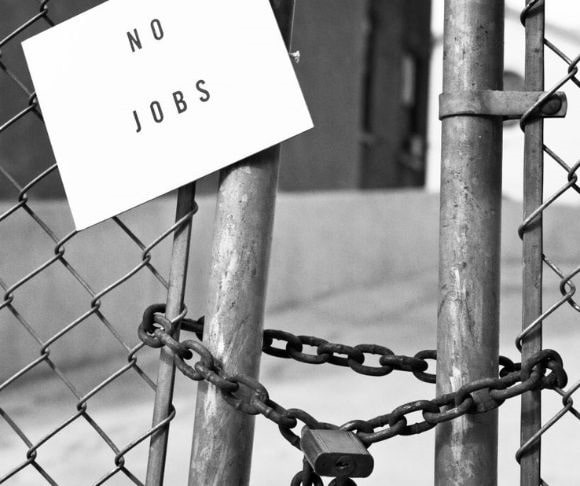The last 12 months have been a horrific time for the technology sector, from cratering stock valuations to rampant tech layoffs. But, as the younger whippersnappers like to say, you ain’t seen nothin’ yet. Indeed, the upcoming year should be another challenging time for Silicon Valley coders, designers, and managers, with everyone bracing for a Federal Reserve-induced recession. Just a few weeks into the new year and tens of thousands of tech workers have been terminated. Who did it?
Tech Layoffs Everywhere
 Alphabet, the parent company of Google, confirmed that it would slash 6% of its workforce, resulting in 12,000 job losses. Microsoft announced that 10,000 employees would be fired, totaling 5% of its payroll. Salesforce handed out pink slips to 8,000 workers, accounting for 10% of its staff. Amazon will be laying off 8,000 employees, amounting to about 2% of its personnel. These major companies shared the same widespread fears, including intensifying economic headwinds.
Alphabet, the parent company of Google, confirmed that it would slash 6% of its workforce, resulting in 12,000 job losses. Microsoft announced that 10,000 employees would be fired, totaling 5% of its payroll. Salesforce handed out pink slips to 8,000 workers, accounting for 10% of its staff. Amazon will be laying off 8,000 employees, amounting to about 2% of its personnel. These major companies shared the same widespread fears, including intensifying economic headwinds.
The new year just started, and dozens of tech firms have announced layoffs, making the upcoming Challenger data fascinating to read next month. Wayfair reportedly eliminated 1,750 workers, WeWork fired 300 staffers, Riot Games cut 46 positions, Lending Club trimmed 225 jobs, and American Robotics reduced payrolls by 50. The list is extensive, just a few weeks into 2023.
The sharp downturn in the tech sector makes sense. It was one of the first industries to benefit from the Federal Reserve’s astronomical monetary expansion in the early days of the coronavirus pandemic. It also gained from consumers being flush with cash from the multiple stimulus and relief checks from the federal and state governments. Moreover, it has been ten months since the US central bank raised interest rates, and now these hikes are traveling through the financial system. Clearly, the easy money era is grinding to a halt, but will the upcoming series of rate cuts investors are penciling in for later this year resuscitate the industry?
Who Needs the Eggs?
Egg prices have spiked about 60% over the last year, averaging close to $4 per carton. In some places in the US, average prices range from $5 to $8. Liberty Nation has detailed some of the causes for this, from rising input costs to bird flu. But the situation has metastasized so much that the marketplace is resorting to smuggling.

(Photo by I RYU/VCG via Getty Images)
New data from the US Customs and Border Protection (CBP) show that egg and poultry seizures spiked 108% at the US-Mexico border in the fourth quarter. Since federal law prohibits uncooked eggs from entering the US, there could be a fine of up to $10,000 if people do not declare these products. However, if travelers do inform CBP that they have eggs in their possession, the items will be seized and destroyed without a civil penalty.
San Diego Director of Field Operations Jennifer De La O urged the public to refrain from taking this risk after seeing a sharp jump in the number of eggs being brought across the border in recent weeks.
But why would anyone take the chance of smuggling eggs in from Mexico? Consider this: A 30-count carton of eggs in Juarez costs just $3.40. Nevertheless, there is no more yolking around at this point. The border crisis does not only consist of migrants illegally sneaking into the United States, but it is also an invasion of egg smugglers.
US Housing Recession Deepens
US existing home sales fell for the 11th consecutive month in December, sliding 1.5% to 4.02 million units. Homebuyers are still behind the eight ball amid lackluster inventory levels and elevated mortgage rates. While this was better than what economists had anticipated, it revealed a real estate market that is still in a recession. Additional Census Bureau figures found that housing starts tumbled 1.4% to 1.382 million units and building permits dropped 1.6% to 1.33 million, resulting in the first annual decline since 2009.
But could the housing sector be on the rebound in 2023? Some data suggest that a bottom may have been reached late last year.

(Photo by Joe Raedle/Getty Images)
The National Association of Home Builders’ (NAHB) Housing Market Index recorded its first monthly increase since December 2021, climbing from 31 to 35 in January. Current sales conditions, sales expectations, and traffic of prospective homeowners increased in the report. “It appears the low point for builder sentiment in this cycle was registered in December, even as many builders continue to use a variety of incentives, including price reductions, to bolster sales. The rise in builder sentiment also means that cycle lows for permits and starts are likely near, and a rebound for home building could be underway later in 2023,” said NAHB Chairman Jerry Konter in a statement.
For the week ending January 13, mortgage applications soared 27.9%, according to the Mortgage Bankers Association (MBA). This was the largest jump since the first week of March 2020, fueled by easing mortgage rates, which declined from 6.42% to 6.23%.
Whether the housing market is coming out of a recession or not may be verified this spring, which is typically the industry’s busiest time of the year. Will families purchase that three-bedroom home with a white-picket fence, or will they continue to sit on the sidelines and live in a rent-controlled apartment beneath a bowling alley on top of another bowling alley?




